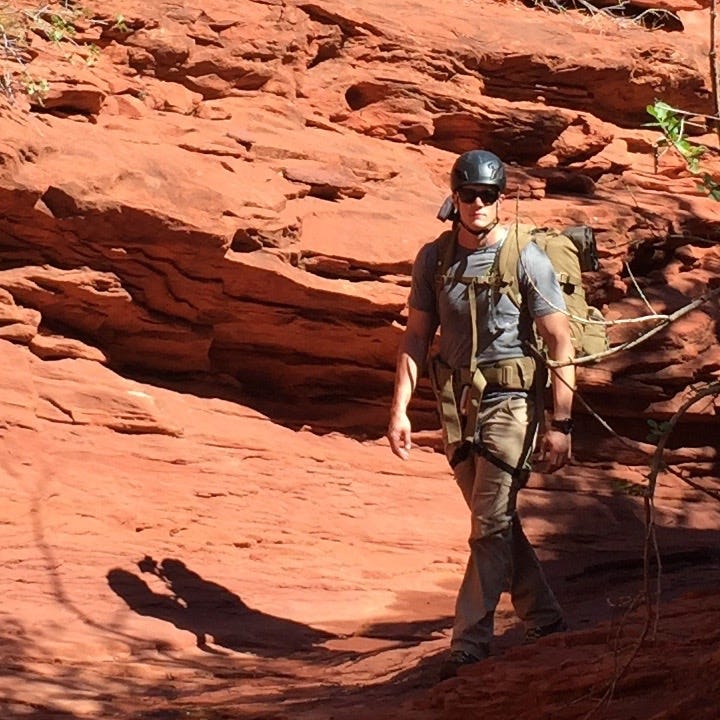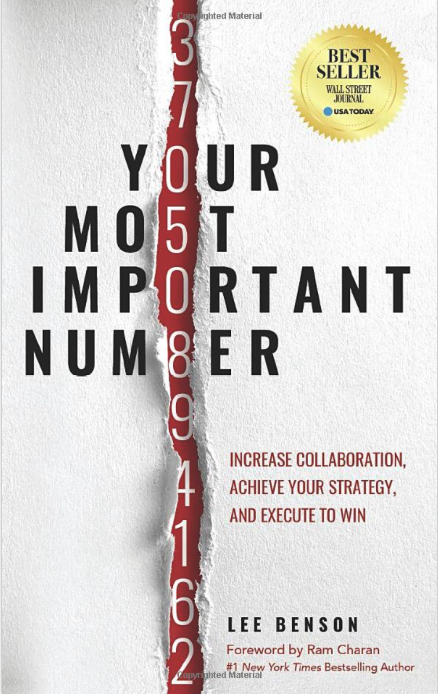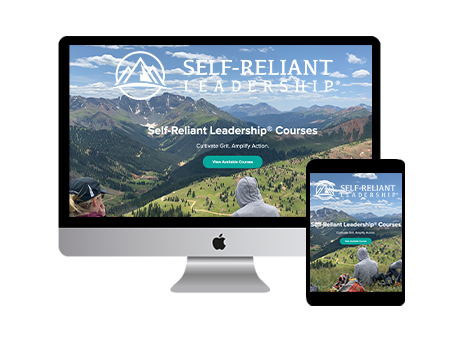I recently had the good fortune to join an expedition in the Canyonlands of Utah with an extraordinary group of men…
The purpose of the expedition was to bring awareness to a program called The Next Ridgeline sponsored by the Green Beret Foundation. The Next Ridgeline is an organization providing guidance to Special Forces veterans in order to successfully transition from serving our country to a productive career in the private sector.
On our expedition was our leader — a veteran Green Beret and successful businessman, a young veteran Green Beret just having finished 11 years in the armed forces, a professional from Microsoft, an HR executive from Western Union, a career CIO, a Navy veteran turned journalist and entrepreneur, our world-renowned guide and myself.

Our group varied greatly in age with most of them younger than I. Unfortunately, this meant that most of them were in much better shape for the challenges we would face climbing, rappelling and hiking in rigorous terrain. It should also be noted that this would be my very first adventure in the outdoors — I was a complete neophyte.
The trip was being chronicled on video by our journalist to share the story of our recent Special Forces veteran transitioning into the private sector. Thankfully, the fine folks at Western Union sponsored our young veteran and provided the opportunity to chronicle his experience for The Next Ridgeline.
Our diverse team was assembled by our leader, Jan Rutherford, to provide collective guidance and wisdom to each other in the forum of a leadership crucible. Jan is the founder of Self-Reliant Leadership and the author of a book titled The Littlest Green Beret. Successful in the Special Forces and in business afterward, Jan is an inspirational leader and a tremendous consultant focused on team dynamics, personal introspection and leadership.

As an experienced business leader with a track record of success, I was attracted to the concept of Jan’s Leadership Crucible. As Jan puts it, “you really don’t know what kind of leader you are until you cold, wet, tired and hungry.” And while we have frustrations, setbacks and stress in the business world, I can truly say I’ve never been that miserable. Like most successful executives, I take great care controlling my environmental variables like food and sleep.
So why was I on this trip? In part, I wanted to test myself. Would I perform under new stresses or would I break? Would my leadership style change? Would I crack under a new type of pressure where my environmental variables were so vastly different? What happens when your whole team is made of driven, successful leaders? Or, perhaps I was invited because I was the perfect foil for a young Special Forces veteran who could survive in the wild, ascend the tallest peaks and carry a heavy load with effortless grace. That’s probably it.
The contrast between us is palpable.
As I got to know this young man, it was clear that he has concerns about entering the civilian private sector workforce. Things that I take for granted are intimidating for him. At 31 years of age, the military has consumed his entire adult working experience. And while these fears feel unique to him, they are the same fears I had at 22 entering the workforce for the first time.
The language of a new environment can be intimidating. In many cases you don’t know what people are saying if you listen in on a business conversation. It was the same for me when I started my career so long ago and it is the same now every time I interact with a new organization.
On our trip I could hardly understand what the veterans were saying as they spoke to each other. There may not be “terps” (interpreters) to show the way in the business world, but the stakes are much lower in the corporate environment. Special Forces veterans are used to processing inferences and languages — that skill will transfer nicely into the business world.
I quickly learned how important training was in the Special Forces world. They have been provided training, courtesy of the United States government, that is in excess of any education and beyond that of any corporation. These young veterans are capable young men. However, I can understand our veteran’s trepidation on whether or not his skills are transferrable.
I had the same feeling as I left college and entered the workforce. I did not feel that my prestigious education had me ready to conquer the corporate landscape. It didn’t. As it turns out, much of what I learned was completely inapplicable. However, the experience of stretching to learn complex topics on tight timelines, managing busy schedules and juggling other interests prepared me for my eventual successes. Special Forces veterans should have confidence that they too can succeed. Not because they have trained to do something, but because they have done many other difficult things before. The business world should not be viewed as a foreign environment, it is more benign than that… it is just the next ridgeline.
My advice to our young Green Beret and his Special Forces veterans looking to enter the workforce is:
• Just know that the people you fought to protect love you and are in awe of you. We view you as our superheroes. You do things we cannot even imagine doing. You do things that allow us civilians to complain about slow WiFi, lost luggage and the DVR that cut off the last 5 minutes of our favorite show.
• If you encounter individuals who you feel are trying to diminish you, please realize that in most cases, these people are likely exposing their own feelings of inadequacy compared to what you have accomplished. Don’t push away. Come closer. Assuage these feelings by being yourself. Share movie quotes. Discuss the pros and cons of online dating apps. Have conversations about things we all share in common. You will find that walls vanish and relationships start. Our team developed profound friendships in a short period of time by having similar discussions. I’m confident we will be in each other’s lives for many years to come.
• Look at the characteristics of a job not the job itself. By now you might know what you enjoy most. Going into a computer programming job might not suit you if you can’t stand being behind a desk all day. If you like being out and about, perhaps a career in sales might suit you better. Everyone is different so take the time to think through your preferences and potential opportunities. Make sure to write it down on paper — trust me that it helps!
• Wherever you go, seek high performance teams within companies. You will feel more comfortable in those environments. Talk to people in a company. They know who is on the high performing teams. Talk to those individuals as well. Not all, but many of these teams will be places in which I suspect you will be most fulfilled. And just like SF qualification, you may need to work a while to get on one of these teams. Based on what I observed.. it won’t take long!
• In the business world your address book is as valuable as your rifle is in combat. Protect it (back it up) and always keep track of the people that you meet. Your business connections are like bullets — it’s always nice to have more. However, be careful to only add people to your network (LinkedIn) if you know them. One bad bullet can cause a jam. Quality in people is as important as quality in ammunition.
• Understand that the military world is something like 80% training and 20% action. The corporate world is 99% action and 1% training at best. You are very prepared. You have missed virtually nothing. Everyone in corporate America is learning on the job. Don’t sweat it. Jump in!
• And if you fear that nobody in the civilian world is like you and can never understand you… you are only partially correct. None of us know what it is like to blow up a car with a thermite grenade. None of us have sacrificed as you have. However, there is courage in the civilian world and people with whom you will find new camaraderie. Consider the Executive/Boy Scout leader who refused to let an inebriated parent pick up a scout after an event. This man lives by similar values, practices them regularly, and is someone with whom you may have more in common with than you would initially suspect.
I was impressed by the empathy of our young Green Beret as I interacted with him. At a personal level perhaps he felt for me as I attempted to ascend some of the more challenging terrain. He was always there to provide a helping hand. To a greater level though, I was impressed by his emotional intelligence with all of the team members.
I know how valuable teamwork and emotional intelligence is in the workplace. If the crucible of Special Forces qualification and training teaches emotional intelligence, the business world will be a playground him and his fellow veterans.

As it turns out, though, I don’t have much to teach this young man. He is ready to enter the workforce. His experience and training, coupled with an attitude and mentality that can only be forged under austere circumstances make him a “blue chip” candidate in most organizations.
I think he should worry less about finding an organization that wants him and more about choosing a career and an organization he prefers. Any company should be rolling out the red carpet for this young man and his fellow SF veterans.
Our young veteran is taking the opportunity to educate himself further before he enters the workforce. I am supremely confident that he will not be victimized by the business world, but rather, he will be victorious.
For me, the experience affirmed many of my thoughts.
• If you can successfully handle adversity in the corporate environment, your agility, out-of-the-box thinking and resilience will show up in more austere situations. I know the opposite is even more true as I observed our young veterans perform.
• If you are remotely out of shape, a bit older and at altitude, going up a canyon wall can truly test your ability to process oxygen through your lungs.
• Dangerous activities, the likes that are undertaken in climbing and military operations, require more explicit conversations with teammates on which you are dependent. There are no assumptions. As an experienced businessman, I would welcome employees who naturally communicate this way.
• The younger generation is as impressive as any I have ever encountered.
• Those who regularly test the limits of their abilities will routinely be successful.
• Personal commitments and interactions trump directives and platitudes.
I am indebted to Jan Rutherford for having invited me to participate. Moreover, I am forever enriched by the new friends I’ve gained through this profoundly unique experience.
Many thanks to our guide Vince Anderson of Skyward Mountaineering. His expertise was expected, but his thoughtfulness, intellectual discussions, camaraderie and humor made our trip an exceptional experience.
I am grateful to the PSC Group, LLC for sponsoring me on this trip, and deeply honored to have had this opportunity to influence this exemplary young man, and hopefully others who have bravely served our country.

Guest Author Jim Vaselopulos is the founder of Rafti Advsiors and shares his acumen as a business advisor, advisory board member and formal board member to many organizations. His portfolio includes a global consulting firm, several services organizations and software/SaaS firms in enterprise governance and healthcare. Jim is also co-founder of ClassAct, a training/mentoring organization for younger professionals. His many roles include Sr. Vice President at PSC Group, LLC, Interim CIO, and strategic business consultant to many others.Follow on Twitter @jim_vas or find me on LinkedIn (http://www.linkedin.com/in/jimvaselopulos)






